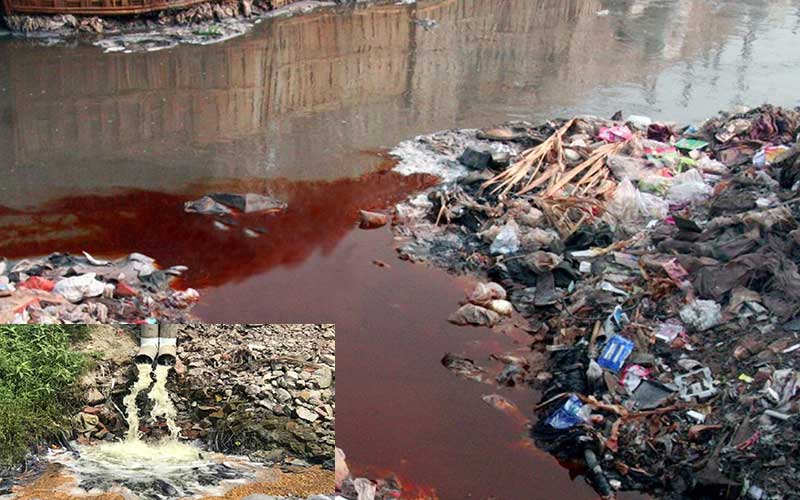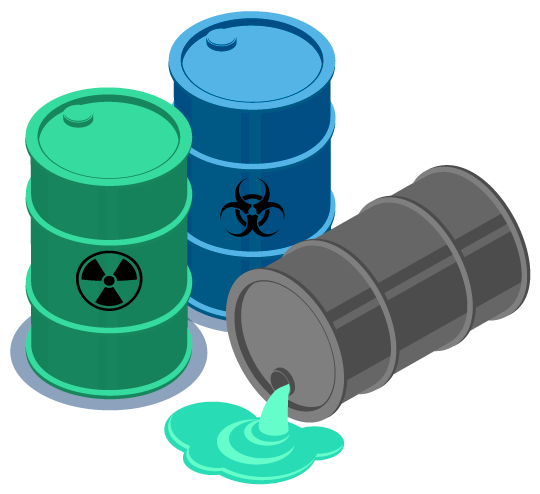Recognizing the Comprehensive Refine of Liquid Waste Disposal: Ideal Practices and Environmental Influence Considerations
The management of liquid waste disposal is a diverse issue that calls for an extensive understanding of different ideal practices and their associated environmental effects. From the types of fluid waste created to the techniques employed for collection, treatment, and last disposal, each action plays a critical function in protecting ecological communities and public health.
Kinds Of Fluid Waste
Understanding the different types of liquid waste is essential for effective monitoring and disposal techniques. Liquid waste can be broadly categorized into a number of types, each needing unique handling and treatment strategies.
Industrial liquid waste often consists of hazardous materials, including heavy steels, solvents, and chemicals, created throughout manufacturing procedures. These wastes require strict governing compliance to safeguard human health and the atmosphere. Domestic liquid waste mainly refers to wastewater generated from houses, including sewer and greywater, which, although much less poisonous, can still pose substantial dangers if improperly managed.
Agricultural fluid waste, including drainage from farms, usually includes plant foods and chemicals that can result in environmental deterioration otherwise dealt with effectively. Medical liquid waste, created from medical care centers, includes contaminated liquids such as bodily liquids and chemicals, requiring specialized disposal approaches to avoid infection and environmental contamination.
Finally, oil and oil waste, generally produced by restaurants and vehicle industries, can cause extreme blockages in sewage system systems otherwise managed appropriately. Recognizing these categories facilitates targeted techniques for treatment, compliance with policies, and effective disposal approaches, eventually advertising environmental sustainability and public health safety and security.

Collection Approaches
Efficient collection techniques are essential for the proper monitoring of liquid waste, ensuring that it is gathered securely and effectively prior to treatment or disposal. Various strategies are employed depending on the sort of liquid waste created, the volume, and the details features of the waste.
One typical approach is the usage of committed collection containers or sumps, which are developed to record liquid waste at the resource. These systems often include pumps that help with the transfer of waste to bigger storage space containers or therapy centers. Additionally, mobile collection systems outfitted with vacuum technology are employed in circumstances where waste is created intermittently or in hard-to-reach locations.
For commercial settings, closed-loop systems can successfully decrease leakages and spills, allowing for the healing and reuse of fluid waste. It is likewise vital to train workers on proper collection protocols to mitigate threats associated with harmful substances.
Moreover, applying normal upkeep schedules for collection devices makes certain optimal performance and safety and security. The integration of innovative monitoring systems can boost collection efficiency by supplying real-time information on waste levels and possible risks. Generally, reliable collection approaches are fundamental to sustainable liquid waste administration methods.
Treatment Procedures
Therapy processes play a vital role in the management of liquid waste, changing potentially harmful materials into recyclable resources or secure effluents - liquid waste disposal. These procedures can be generally classified into physical, chemical, and biological techniques, each tailored to deal with particular pollutants existing in the waste stream
Physical treatment methods, such as sedimentation and filtration, job by getting rid of suspended solids and particle matter. These techniques are often the initial step in the treatment chain, effectively reducing the load on succeeding procedures. Chemical treatments entail making use of reagents to counteract dangerous compounds, precipitate hefty metals, or oxidize organic toxins, consequently enhancing the safety of the effluent.
Organic therapy procedures, including triggered sludge systems and anaerobic food digestion, utilize on the all-natural abilities of microorganisms to break down natural matter. These approaches are specifically reliable for wastewater containing biodegradable contaminants. Advanced therapy innovations, such as membrane layer filtering and progressed oxidation processes, are significantly employed to accomplish higher levels of filtration.
Including a combination of these therapy methods not only makes certain compliance with regulative criteria however likewise advertises liquid waste removal melbourne ecological sustainability by recuperating useful sources from liquid waste.
Disposal Options
How can organizations make certain the accountable and safe disposal of fluid waste? Reliable disposal alternatives are important for protecting public health and the environment. The primary techniques include land disposal, incineration, and treatment complied with by discharge right into metropolitan wastewater systems.
Land disposal entails the mindful control of fluid waste in marked land fills, ensuring that it Web Site does not leach into bordering dirt or water. Incineration, on the various other hand, topics fluid waste to high temperatures, converting it right into ash and gases, which call for appropriate filtering to lessen exhausts. This technique is ideal for dangerous wastes that can not be dealt with via typical methods.
In cases where fluid waste can be dealt with, organizations may select chemical or biological therapy procedures to neutralize damaging elements before discharging the dealt with effluent into local systems. This path usually aligns with regulatory demands, making certain that the effluent fulfills security standards.
Eventually, companies need to conduct comprehensive analyses of each disposal choice to establish its stability, considering factors such as waste make-up, governing compliance, and potential dangers to health and the setting. By choosing suitable disposal approaches, companies can add to a liable waste administration approach.
Environmental Influence
The ecological effect of fluid waste disposal is a crucial factor to consider for companies looking for to reduce their eco-friendly footprint. Inappropriate disposal methods can result in considerable contamination of water resources, dirt deterioration, and damaging effects on local ecological communities. For example, harmful fluids can seep right into groundwater, presenting risks to drinking water products and aquatic life. Additionally, the discharge of unattended or inadequately treated waste into surface area waters can result in eutrophication, resulting in oxygen deficiency and the succeeding death of fish and various other microorganisms.

To mitigate these impacts, companies have to take on finest methods such as applying extensive waste treatment processes, advertising recycling and reuse, and sticking to governing requirements. By taking a visit their website positive approach to fluid waste monitoring, entities can dramatically lower their ecological footprint while sustaining lasting advancement goals. Inevitably, a detailed understanding of the environmental impacts related to liquid garbage disposal is essential for educated decision-making and accountable stewardship of natural deposits.
Final Thought
Effective monitoring of fluid waste is essential for safeguarding ecological stability and public health. By taking on finest techniques in disposal, collection, and therapy, along with adherence to regulative criteria, the potential for dangerous contamination of ecosystems can be dramatically minimized. Continual improvements in technology and procedures add to sustainable waste administration efforts. Eventually, an extensive understanding of fluid waste disposal not only minimizes ecological impacts yet also promotes a dedication to accountable source management and ecological stewardship.
The management of liquid waste disposal is a diverse concern that needs an extensive understanding of various best practices and their connected environmental effects. From the types of fluid waste created to the approaches used for collection, therapy, and last disposal, each action plays a critical role in protecting ecological communities and public wellness.The environmental impact of liquid waste disposal is a vital factor to consider for organizations looking for to lessen their eco-friendly impact. Eventually, a detailed understanding of the ecological effects connected with liquid waste disposal is important for notified decision-making and accountable stewardship of natural resources.
Ultimately, a comprehensive understanding of liquid waste disposal not only minimizes ecological effects however likewise fosters a dedication to liable resource administration and environmental stewardship.